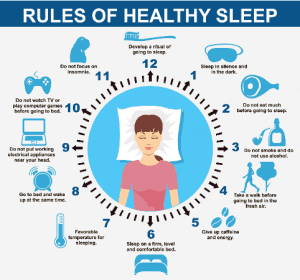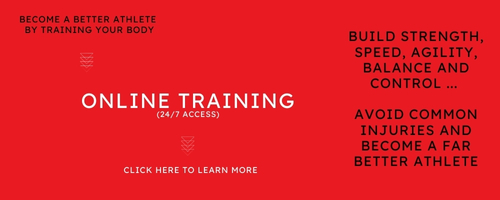If You Don’t Snooze, You’ll Lose!

written by Natalie Koehler
How many times have you been so invested in a Netflix show that you said ‘just one more episode’ at 9:10pm and suddenly it’s midnight and you still haven’t gotten to sleep?
We’ve all been there, which is why we know how much you regret that decision the next day.
But does it really matter? It’s only sleep, right?
Well, research tells us that getting adequate and quality sleep is especially important for performing well during training sessions and games. Sleep should be one of the easiest things you can control outside of games and training to be your best.
How much does sleep actually affect performance?
In a world where research is becoming further advanced and prominent, we are able to identify more clearly the importance of sleep on performance. Research has shown that poor quality of sleep increases the amount of fatigue an athlete feels during competition and reduces sport-specific skills involving fine motor skills (e.g serving accuracy in tennis, Reyner & Horne, 2013).
A study including basketball athletes demonstrated increased performance in sprint times, free throw and 3-point shooting accuracy, reaction times and general mood when their total sleep duration was improved (Mah et al, 2011).
Consider how well your body performs on 5 hours of sleep, compared to the recommended 7-9 hours. Not only are you physically going to feel these effects, but also mentally and emotionally.
How many times have you been 100% focused while you can barely keep your eyes open? The way you feel across each factor is going to be demonstrated in your performance, which could also increase you risk of injury due to your lack of concentration and ability.
Sleep aids in recovery and so much more
There are countless benefits that a good night’s sleep can have on an athlete’s performance, with these findings representing just a minority of the evidence. Recovery, tissue repair, growth and restored immune system are some of the more common benefits that are seen across all sporting populations.
Without adequate sleep, we expose ourselves to these concerns. I don’t know about you but running around on a field with a blocked nose is not my preferred game plan!
Too much screen-time, not enough sleep-time..
We have an internal body-clock, called our circadian rhythm, which influences many of our internal functions. Our circadian rhythm receives signals from our environment, specifically light and darkness, to adjust itself and recognise when it’s time to wake up in the morning or go to sleep at night.
So how does technology affect this? Well, the blue light from your screen stimulates your brain in a similar way to the sun, keeping you alert and affecting your circadian rhythm when exposed to them during the night.
As technology becomes more available and prominent in our lives, our blue light exposure during the night increases, often affecting how well our internal body-clock works. Not only are we affected by blue light with increased screen-time but the temptation to stay up later than usual watching a movie or scrolling endlessly through social media platforms also affects our sleep.
That’s why it’s important to be cautious when using devices in the evening to ensure our sleep patterns aren’t affected largely by these matters.
Set a routine, routine, routine…
Having a regular routine is the easiest way to ensure you get enough sleep, but also to ensure you have better quality of sleep.
Taking the time to think about your sleep patterns and maximizing your sleep routine is a simple way to ensure you are recovering well and providing yourself with the best opportunities to increase your performance!

4 tips to getting better sleep –
- Good sleeping environment
- Darkness
- Silence
- Favorable temperature
- Comfortable bed
2. Reduce screen time at night
- Set a time to put away your phone, iPad, tablet etc.
- Invest in blue light blocking glass
3. Have a regular sleep routine
- When possible, go to sleep and wake up around the same time each night
- Develop a ritual before bed – e.g. have a shower, brush your teeth, and then read a chapter of a book before going to sleep to allow your body to recognize when it’s bedtime
4. Avoid eating large meals, unhealthy snacks, and caffeinated drinks before bed
- Unhealthy foods will increase your energy level due to the higher content of sugar/carbohydrates
- Caffeine boosts your energy, which is the opposite of what you are wanting when going to sleep
Recommended Reading List:
If you want to read more about sleep, how it affects our everyday performance and why it is so important, then check out this book:
Stewart Briggs’ Favourite! – “Why We Sleep: Unlocking the Power of Sleep and Dreams” – by Matthew Walker
Find it here: https://www.amazon.com.au/Why-We-Sleep-Unlocking-Dreams/dp/1501144316
Other Links:
Basketball study: Mah, C. D., Mah, K. E., Kezirian, E. J., & Dement, W. C. (2011). The effects of sleep extension on the athletic performance of collegiate basketball players. Sleep, 34(7), 943–950. https://doi.org/10.5665/SLEEP.1132 (https://www.ncbi.nlm.nih.gov/pmc/articles/PMC3119836/)
Tennis study: Reyner, L., Horne, J.A.. (2013). Sleep Restriction and Serving Accuracy in Performance Tennis Players, and Effects of Caffeine. Physiology & Behaviour. 120. 10.1016/j.physbeh.2013.07.002. (https://pubmed.ncbi.nlm.nih.gov/23916998/)
Circadian Rhythm: https://www.sleephealthfoundation.org.au/body-clock.html
Blue Light: https://www.health.harvard.edu/staying-healthy/blue-light-has-a-dark-side

